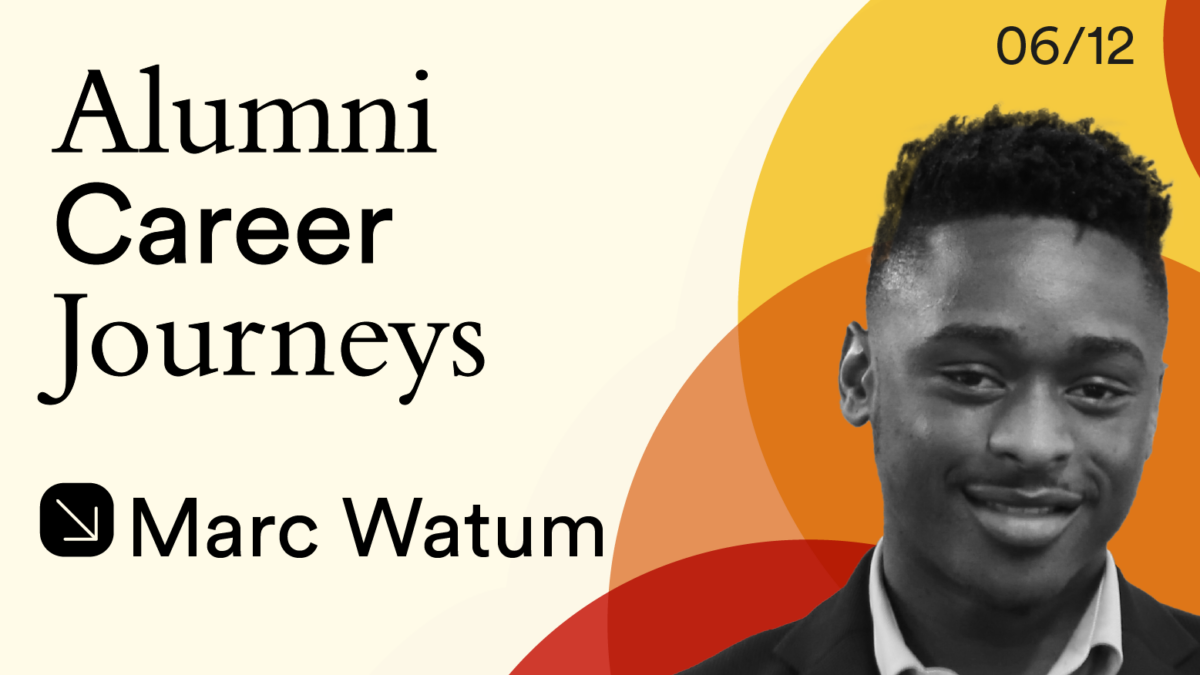As we continue to celebrate the career success of Hult alumni as part of our 12 over 12 series, this month we had the honor of speaking with Bachelor of Business Administration Class of 2017 graduate Marc Watum.
From the Democratic Republic of Congo and born in South Africa, Marc has always been passionate about supporting entrepreneurs and future business minds from his home country and across the African continent. With a focus on sustainability and a vision to drive Africa towards prosperity, Marc found a home at Hult to nurture his own entrepreneurial talents and launch a career with incredible impact.
Today, Marc is the founder and chairman of the Vision 2030 Fund, a social innovation venture capital fund with the aim of tackling food insecurity and climate-related challenges in Sub-Saharan Africa. He is also a convenor at the School of Pan African Thought, providing CPD-accredited education to African professionals. In addition to serving on the advisory board of a number of organizations dedicated to addressing some of today’s most important economic, social, and ethical issues, Marc is the CEO of Vertex Ecosystem, a venture he co-founded as a Hult student to empower social entrepreneurs to address Africa’s developmental challenges.
We were lucky enough to speak to Marc about his career and find out more about how his time at Hult helped him learn how to do business to do good.
Hult: Can you tell us a little bit about your background?
Marc: I grew up moving around a lot, first from my birth town in South Africa to Mali, then to Uganda, with a few stops and a lot of continental travel in between. For the most part, this meant exposure to Africa’s inefficiencies, especially when comparing the state of this continent to the advanced, developed countries we were privileged to visit.
One thing was clear to me: poverty and underdevelopment, together with the history of colonialism and the narrative of Africa as a hopeless continent, is unfair. We have such a beautiful and bountiful ecosystem, kind-hearted cultures, rich histories, and so much promise.
The desire to turn my experience into a vehicle that helps Africa actualize into a promise-fulfilling powerhouse became an obsession. On the one hand, I knew that business acumen would be crucial—businesses generate profits, and profits can be invested to improve lives. On the other hand, successful businesses don’t seem to be geared to create the kind or scale of improvements that Africa needs.
I knew that I wanted to study economic development to find the perfect formula to bridge business and African economic transformation. This dream came true as I got to study financial markets and institutions, alternative investments, management, and entrepreneurship at Hult.
I knew that I wanted to study economic development to find the perfect formula to bridge business and African economic transformation.
H: Why did you choose to study at Hult?
M: I got lucky. I was sitting on a conditional offer from Cambridge l when I decided to look into a few business schools. As I took a break from my Hult application and stepped out for some fresh air, Hult’s admissions team gave me a call that I’ll never forget: they offered me an Academic Excellence scholarship. And by the time I got back to my desk, they’d emailed me an even better-than-promised deal. Because of the grades I had in relevant IB diploma classes, I’d earned enough credits toward my university degree to skip my first year.
Honestly, this was the first time in my academic career that anyone recognized my performance in school with a tangible reward. I’d played on every varsity sports team possible, but never won a faculty award or mention. I almost tripled community service targets, and I had excellent grades, but was somehow never publicly recognized for it. To my peers, I was a model student, while to faculty I was just another student. I felt overlooked in many ways.
Although this was over 10 years ago, I still hear stories of some faculty in international schools in Sub-Saharan Africa who perpetuate culturally insensitive, maybe even racist, treatment of minority students who come from less privileged social backgrounds.
So, when it came to Hult, I thought to myself, “Finally! This is a community I want to be in!” And the rest is history.
Finally! This is a community I want to be in!
H: Were you involved in any extracurricular activities or sports clubs while at Hult?
M: I led the Consulting Club for two years during my second and third years at Hult. We did projects with all kinds of corporations—Ferrari, McLaren, and Virgin. We organized insight days with consultants from Ernst & Young, Capgemini, Accenture, and Boston Consulting Group, and held events with branding experts like leading marketing specialists at Burberry, Call of Duty, and Google.
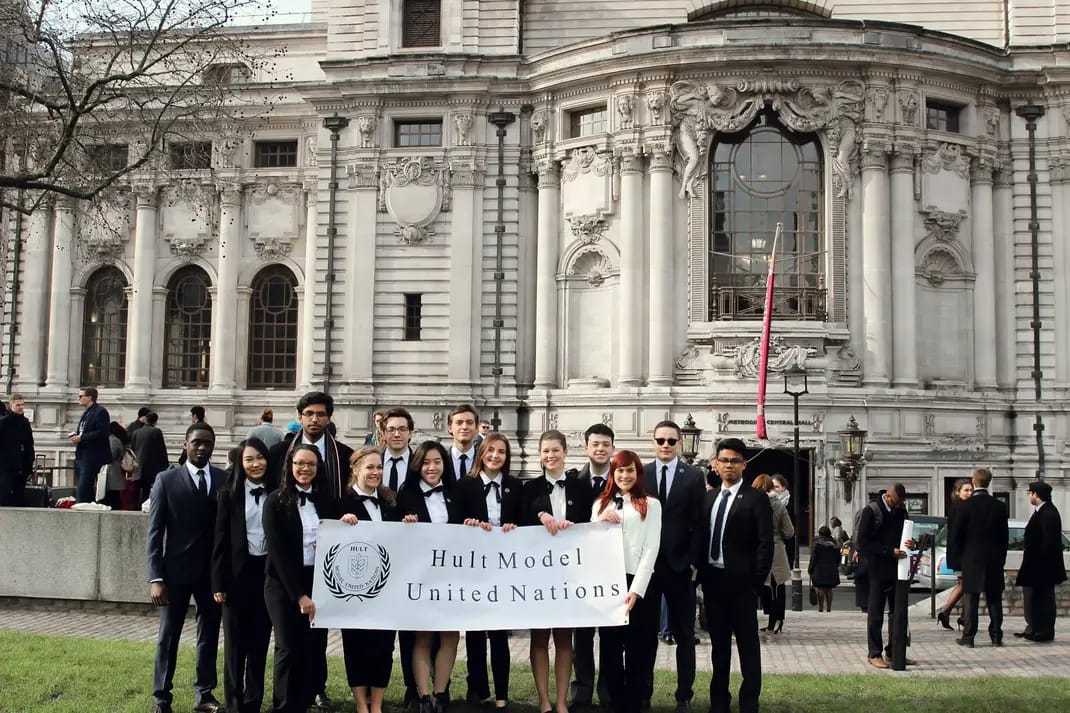

As well as the Consulting Club, I participated in Model United Nations. We were awarded Best Small Delegation at the Cambridge International MUN and Best Delegation at the London International MUN. Our peers on campus voted us Most Professional Society for the 2016-2017 school year.
I was also a member of the Hult Men’s 1st Football Team, where we won two London University Sports League division championships.
H: How did the BBA curriculum help prepare you for your career?
M: The Hult curriculum broke down walls in so many ways that studying felt more like real-world job experience. The emphasis was on solutions, adaptations, pivots, responses, reactions, and, in many cases, predictions.
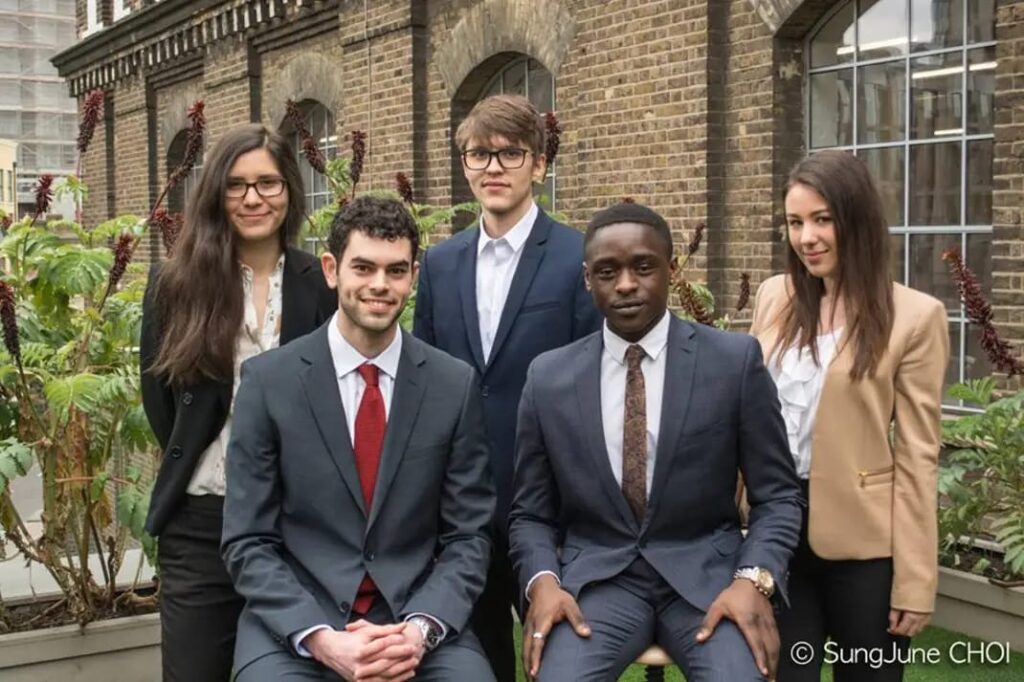

Hult made the borders between academia and the corporate world feel non-existent. Where else is Ferrari going to be your client as an undergraduate? Where else will you meet the Founder of Shazam and the Head of Digital Banking Innovation of Virgin Money as they’re teaming up to open a new financial service for students?
This is only the tip of the iceberg of my Hult experience. The rest is beyond words and more of a DNA thing.
The Hult curriculum broke down walls in so many ways that studying felt more like real-world job experience.
H: Did you always know you wanted to focus your career on social entrepreneurship?
M: I have always wanted to help create social innovations that resolve developmental challenges, provide livelihoods, and effectively revolutionize life in a way that propels Africa into prosperity.
Studying at Hult proved to me that entrepreneurs, businesses, and the international financial order steer a great chunk of the value required to achieve this goal. We studied business models, finance strategies, and the impact of the companies who create and use them. Some of these companies have more lobbying and financial power than the nation-states where I come from. To recognize that virtually none of these resources flow to Africa showed me the imperative gap that has to be filled, and so my career has naturally shifted into this space.
H: What’s the story behind Vertex Ecosystem?
M: Vertex was founded by fellow students and me in our senior year as a two-day summit, calling on the immense business network we’d built, to contribute to the ideas under incubation by our diverse student body.
The journey was a testament to Hult’s investment in its own students. I’ll never forget pitching this event to Hult’s leadership team, who were accommodating enough to pre-order hundreds of tickets and reserve the undergraduate campus as our venue. This was the beginning of a seven-year journey to build this brand into a fully-fledged entrepreneurial empowerment ecosystem.
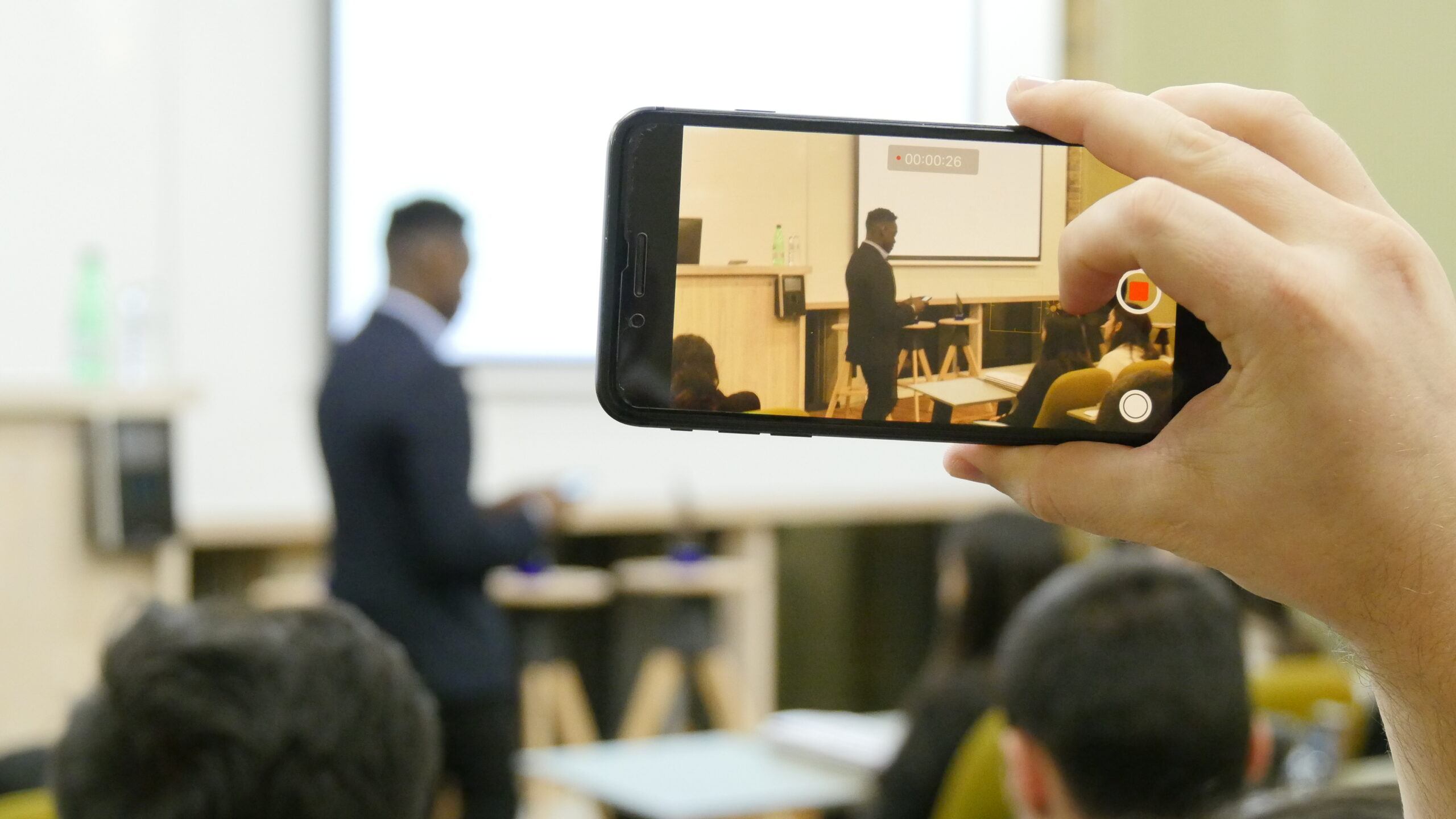

I consolidated the brand with a return to Africa, hosting our second summit in Nairobi, Kenya, and then multi-city projects spanning townships in South Africa, as well as consulting in Cairo, Egypt at the MENA Innovation Summit. Soon, I received an offer from one of the top development studies programs in the world, confirming my return to London for an MSc. at the School of Oriental and African Studies. This experience helped me to sharpen the focus of Vertex Ecosystem into generating sector-shifting startups that help Africa transform out of its status as a low-value-adding economy.
Along the way, we’ve delivered talks on the use of innovation to spur economic development at several United Nations events. This led to organizing a UN-supported food systems summit dialogue, which inspired the creation of our 2030 agenda, focusing on the underinvestment in the African primary sector. It took a great deal of courage, but our incubator proved that we are capable of identifying bankable solutions and demonstrating to global financiers why they ought to invest in this sector.
We began to preach this gospel to key institutions in the global development community, like the Global Forum, COP, World Economic Forum, and African Development Bank. Through Vertex and our Vision 2030, I’ve personally advised over 30 African governments, met with heads of state, and began a journey that is yet to be told in full.
It took a great deal of courage, but our incubator proved that we are capable of identifying bankable solutions.
H: What do you enjoy most about what you do?
M: I enjoy the freedom to continue to be myself. My job relies on strong partnerships, research, and business advisory skills, which are things that coincide with my character, hobbies, and interests.
Undoubtedly, the foundation I built at Hult made this possible. For example, as a management major, the strong balance of real-world consulting, case studies, and applying theory to practical projects was one of the most validating experiences of my life.
We learned to crack cases, solve problems, propose new ideas, integrate research, and communicate these with top-tier executives in such a way that being thrown in the deep end after graduation doesn’t feel all that unfamiliar. Rather, I entered this role with ease, a sense of direction, and self-belief that has kept me able to focus on growth despite ever-evolving, increasingly complex challenges in my career.
H: What advice would you give to current and prospective Hult students who aspire to build a career with impact?
M: Try it for yourself and set a challenge: dream big and seize the opportunity. To Hult faculty, no dream is too big. They’ll help you plan it and execute it, believe me. Be diligent, show up every day, and perform. This business school will boost your efforts.
To Hult faculty, no dream is too big.
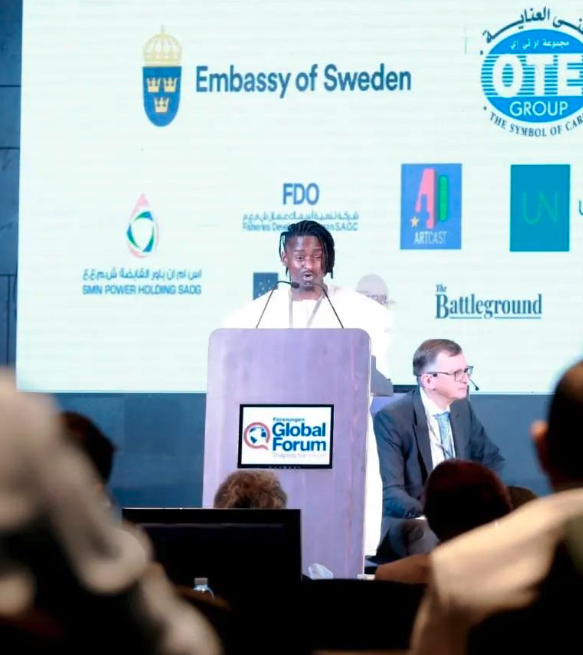

H: What’s next for you?
M: I’m focused on scaling businesses and further study on African economic transformation. I’m now a published author, thanks to the Global Forum, Routledge, and Taylor & Francis. Whether through independent or organizational work, you can expect me to be impacting the lives of millions of Africans.
I believe in God, and I believe in each of us having a calling in our lives with a purpose that is greater than ourselves. I see myself on the path to lead economies one day, to be a trusted advisor on all things economic transformation, and to heed a generational calling to propel this continent forward. I think it’s no coincidence that my grandfather has served as a minister, my father has recently been appointed as one, and with no pressure from my folks, I’m in that arena today, too.
I believe in each of us having a calling in our lives with a purpose that is greater than ourselves.
H: Congratulations on your amazing journey so far, Marc, and all the best for the future! We look forward to seeing what you achieve next.


